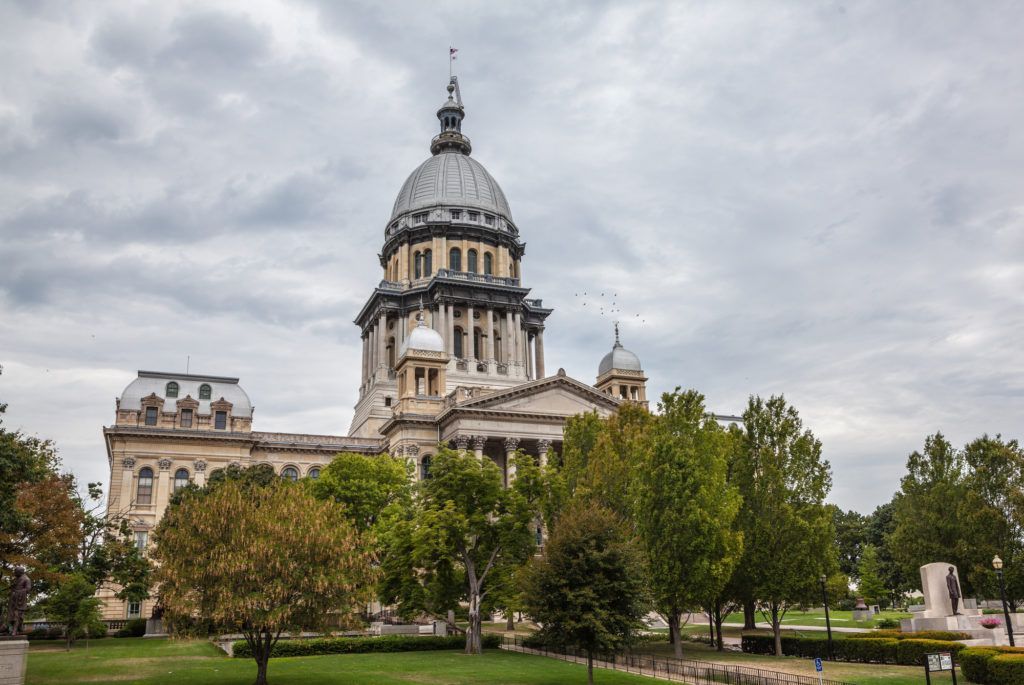
Zoned Out: Marijuana Is (Maybe) Coming to Town
If Illinois legalizes recreational marijuana, businesses will still need to navigate new local land use and zoning rules.

In 1996, California became the first state to approve medical marijuana, and, in 2012, Colorado and Washington were the first to adopt it recreationally. By the end of 2018, 33 states allowed medical use with 10 states also permitting recreational use. Illinois launched a medical cannabis program in 2014 and now seems poised to legalize recreational use this year.
State Sen. Heather Steans and State Rep. Kelly Cassidy introduced recreational cannabis use bills in 2018 ( SB 316 and HB 2353 ) but opted to delay a full pursuit hoping for a more pot-friendly governor in 2019 (cue J.B. Pritzker). The congresswomen are now expected unveil a full bill as early as April, which could then be signed into law this year (note, a separate recreational use bill HB 902 filed by State Rep. Carol Ammons last month is unlikely to gain traction with the focus on the more-restrictive Steans-Cassidy plan).
Despite Illinois having one of the most regulated medical marijuana programs in the country, many national cannabis companies are based in Illinois including Verano , Green Thumb Industries , PharmaCann and Cresco Labs. While we await the official details of the Steans-Cassidy legislation, many of the state’s medical marijuana companies and other stakeholders have already begun to prepare for its likely passage.
For businesses and local governments, a major part of preparation involves local land use and zoning rules. Many local governments already have zoning provisions in place to regulate medical marijuana businesses but will need to update their codes for recreational businesses.
Medical Marijuana: A Different Bowl Game
Illinois’ medical cannabis enabling act,Compassionate Use of Medical Cannabis Pilot Program Act (410 ILCS 130/105), allows local governments to enact “reasonable zoning ordinances” regulating the location of medical marijuana businesses as long as such rules do not “unreasonably prohibit the cultivation, dispensing, and use of medical cannabis.” Further, the Act prohibits medical marijuana operations from locating in areas that are zoned for exclusively residential use (i.e. mixed-use zones are okay) and requires a buffer from schools and similar uses—1,000 feet for dispensing and 2,500 feet for cultivation.
The Act has also capped the number of cultivation facilities at 21 (one per State Police district) and dispensaries at 60 (distributed throughout the state roughly by population—though only 55 dispensary licenses have been granted so far). Currently, the medical program has enrolled around 55,000 patients but may grow to 300,000 patients after the Opioid Alternative Pilot Program launched a few weeks ago. By comparison, the recreational market would draw an expected 800,000 customers. To meet the increased demand, businesses will need to create new and expanded facilities.
The Cost of Zoning Out Cannabis
While the Steans-Cassidy plan may not cap statewide recreational cannabis permits, it will likely give local governments greater land use control over recreational businesses than they have over medical ones. Reportedly, municipalities will even be able to outright ban recreational businesses, though, they must then forgo a share of state tax revenues from the program to do so. (Under a similar deal in Colorado, an estimated 72% of municipalities prohibit cannabis sales.) However, even if not banned, an aspiring marijuana business may find itself effectively zoned out of the community.
Overly restrictive zoning and buffer requirements may limit a business to an area with insufficiently available or suitable real estate. For example, in mid-2017 Denver opened applications for “social consumption” permits for events and private clubs, but, due to zoning and buffer restrictions, only one applicant has received a license so far. Denver is now considering loosening those restrictions which currently require a 1,000-foot buffer from schools, daycares, drug treatment centers, and public recreation areas, leaving just 20.3 square miles (about 7.6% of land in Denver) available—nearly half of which is already occupied by uses such as golf courses and cemeteries which could not accommodate social consumption.
While the Steans-Cassidy bill will likely not allow social consumption, zoning and buffer requirements will be major factors for businesses and local governments. With lawmakers racing to make Illinois the first state in the Midwest to roll out a recreational cannabis dispensary, businesses and local governments should be ready to hit the ground running.
DISCLAIMER: Because of the generality of this update, the information provided herein may not be applicable in all situations and should not be acted upon without specific legal advice based on particular situations.
DISCLAIMER: Because of the generality of this
update, the information provided herein may not be applicable in all situations
and should not be acted upon without specific legal advice based on particular
situations.

CONTACT US TODAY
Contact Us
We will get back to you as soon as possible.
Please try again later.
LOCATION
570 Lake Cook Road, Unit 119
Deerfield, IL 60015
Shapiro & Associates Law | All Rights Reserved |
Created by Olive + Ash.
Managed by Olive Street Design.









